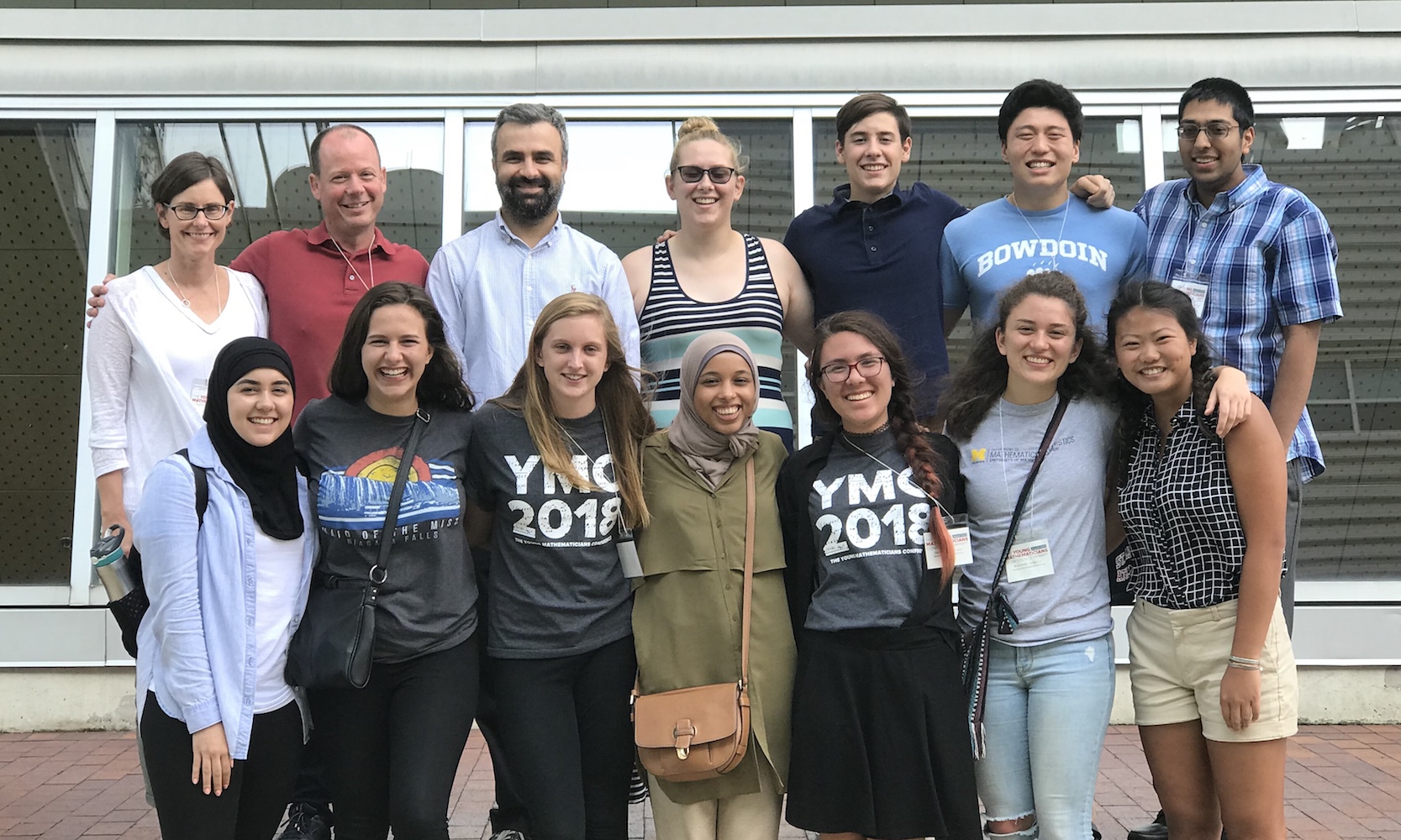
Taima Younes presented mathematics research at prestigious conferences. She’s now on a first-name basis with people from institutions around the nation, Ivy League to small regional colleges. And the program that helped the mathematics and software engineering double major make these connections is what changed her mind about what she wanted to accomplish after graduation.
Younes took part in Research Experiences for Undergraduates, a National Science Foundation-sponsored educational opportunity. She spent eight weeks over the summer at UM-Dearborn’s program site — one of only 57 nationally — meeting students from around the U.S., learning how to conduct mathematics research and navigating the graduate school admissions process.
“REU showed me the advances that I can help make through mathematic research,” said the junior, one of 14 participants selected from more than 300 national applications. “I wasn’t thinking about graduate school before this, but now I see it as the right path for me. The program may be something I did over the summer, but the work I’ve done and the relationships I’ve built continue.”
Last month, Younes’ research project on moving mesh systems was included in the Sargon Partners Undergraduate Research Showcase and the Summer Undergraduate Research Experience (SURE).
She’ll also present at the 21st Annual Nebraska Conference for Undergraduate Women in Mathematics in January.
Younes said her research blended well with her interest in numerical data and artificial intelligence, noting that moving mesh systems — which typically looks like a protruding bump shifting on a grid — has the potential for improving computational fluid dynamics access and results by reducing computational costs and data storages without reducing the overall level of information accuracy. This technology is used in most engineering sciences, like automotive aerodynamics.
Currently, this fluid flow analyzation is done on high-speed supercomputers, but it would be beneficial to validate methods that could be used in creating more widely accessible software. The project complements Mathematics Professor Joan Remski’s research; Remski served as a faculty mentor for the project.
“This has application. And it’s a challenge. That’s why I really enjoyed it,” Younes said, sharing that they had computerized a moving mesh system to model Burgers’ equation — a 70-year-old mathematical application typically used in fluid mechanics — and were able to achieve results. “In my calculus classes, there was only one answer to a problem. But with the REU project, you learn that there are multiple ways to find a solution and this happened during our research too, even when following what you believe is the right path, you still might end up nowhere. It’s frustrating, but every trial and error teaches you a little bit more.”
Mathematics Associate Professor Yunus Zeytuncu, who started the REU program on campus in 2015, said the annual program creates a rich intellectual environment. The students, who all stay at The Union at Dearborn during their eight weeks and receive a stipend, work in groups of three with an experienced UM-Dearborn faculty mentor. They present their research progress weekly in front of math faculty so they can learn how to present. And they learn how to write research papers and graduate school application letters.
“This program is to get more people interested in STEM-field research, which is a need we have in the United States,” Zeytuncu said. “It’s not just a program in the summer; we even interact with participants years later and write letters of recommendation and plan to meet at conferences. And one day, we hope that we will move from mentors to colleagues.”
Younes said she’s now interested in working to become one of those colleagues.
“I’ve always been interested in machine learning and the REU program taught me that math is more than something you teach; there’s a lot that can be done through applied mathematics research,” she said. “And I’d like to do research for the long run.”



